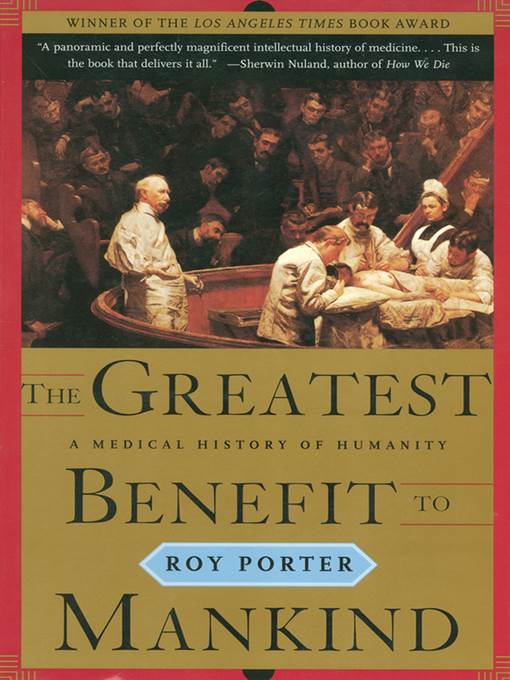
The Greatest Benefit to Mankind
A Medical History of Humanity (The Norton History of Science)
تاریخ پزشکی بشریت (تاریخ علم نورتون)
کتاب های مرتبط
- اطلاعات
- نقد و بررسی
- دیدگاه کاربران
نقد و بررسی

December 30, 1996
Porter's magisterial chronicle of medical thinking and practice deserves the popularity of his bestselling London: A Social History. Neither demonizing nor glorifying modern high-tech medicine, his epic history underscores the enormous progress achieved when Western medical science, by dint of anatomical and physiological investigations beginning in the Renaissance, broke decisively with the world's traditional medical systems--ancient Greek, Chinese, Indian Ayurvedic, herbalism, and the like--which viewed health as a precarious balance among the body, the universe and society. At the same time, he is nonjudgmental, examining each healing system on its own terms for possible value today. Although the scope of Porter's account of physicians, theories, advances and diseases can be daunting, he leavens his presentation with allusions to Moliere, Boccaccio, Swift, Pepys and Maugham, and extends his analysis of medicine's social dimensions to patient-doctor relations, medical responses to insanity, the influx of women healers into a male monopoly, the politics of public health and the intertwining of medicine with colonization, conquest, urban growth and religion. Finally, he weights the breakthroughs of the last 50 years in genetics, immunology, bacteriology and psychopharmacology against a record of disastrous drugs, iatrogenic (physician-induced) illness, medicalization of normal events, unequal access to health care, emerging lethal viral diseases and the intractability of chronic disorders. His diagnoses: modern medicine urgently needs to redefine its goals and priorities. Written with storytelling flair and erudition, this study will be of interest to laypersons and professionals alike. Porter is a professor of the social history of medicine in London. Illustrated.

























دیدگاه کاربران